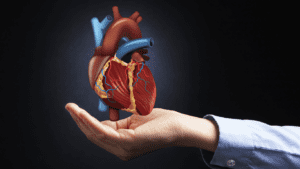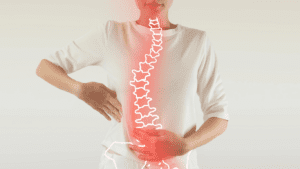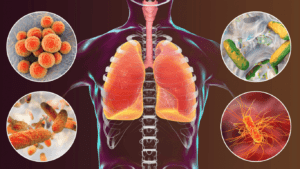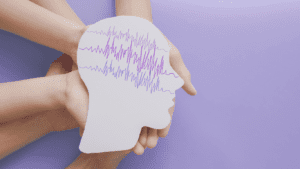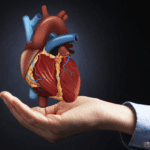For many women, the postpartum period can bring great joys as well as challenges. One of the mental health problems experienced during this period is postpartum depression. This article discusses what postpartum depression is, its symptoms, causes and support methods that can be used to get through this challenging period.
Definition and Importance of Postpartum Depression
Postpartum depression is a type of mental health problem that can occur in mothers in the first weeks or months after giving birth. It causes emotional and physical changes that can negatively affect the mother's daily life.
The Meaning of Depression and the Postpartum Process
Depression is a condition that makes a person feel constantly sad, empty or hopeless. Postnatal depression is characterized by these feelings following childbirth, making it difficult for the mother to adapt to her new role.
The Importance of Postpartum Depression
Postpartum depression can affect not only the mother, but also the baby and the family as a whole. Early diagnosis and intervention are critical to ensure that the family can function in a healthy way.
Symptoms of Postpartum Depression
Although the symptoms of postpartum depression vary from person to person, there are some common signs.
Emotional Changes
- Extreme sadness, feeling of helplessness
- Sudden emotional changes
- Loss of interest, especially in the baby or other loved ones
Physical Symptoms
- Insomnia or oversleeping
- Appetite changes
- Lack of energy or constant fatigue
Behavioral Changes
- Difficulty with daily functions
- Avoidance of social interaction
- Thoughts of self-harm
Causes of Postpartum Depression
Postpartum depression has many potential causes and is often the result of a combination of several factors.
Hormonal Changes
In the postpartum period, sudden drops in hormones such as estrogen and progesterone can cause emotional fluctuations.
Psychological Factors
Psychological risk factors include a history of depression, a family history of depression, or anxiety about the postpartum period.
Social and Environmental Factors
Environmental factors such as inadequate social support, relationship problems, and financial difficulties can also increase the risk of postpartum depression.
Ways to Cope with Postpartum Depression
There are many strategies to combat postpartum depression. These include seeking professional help, developing self-care routines and utilizing social support systems.
Professional Help and Therapy
Psychotherapy and, when necessary, medication are effective ways to manage postpartum depression. Consulting a health professional is the first step in the healing process.
Self-Help Strategies
Regular exercise, a healthy diet and adequate sleep are the cornerstones of promoting emotional health. Stress reduction techniques and engaging in hobbies can also be helpful.
Social Support and Networking
Family members, friends and postpartum support groups can offer support and understanding during difficult times. Such social networks help to reduce feelings of loneliness and contribute to the healing process.
Support Resources for Postpartum Depression
There are many resources available for coping with postpartum depression. These include health organizations, online support groups and family counseling services.
Healthcare Organizations and Consultancy Services
Local health care providers can offer therapists and counsellors who specialize in postpartum depression. These professionals can develop support and treatment plans tailored to individual needs.
Online Support Groups and Forums
There are many support groups and forums online where you can connect with other mothers going through similar experiences. These platforms are a valuable resource for sharing experiences and getting support.
Support from Family and Friends
Family members and friends can provide important support for people struggling with postpartum depression. Opening up to them and asking for help is an important step in the healing process.
Personal Stories and Success Stories
Many women who have struggled with postpartum depression have successfully overcome it. Personal stories and success stories can provide hope and inspiration.
Real Life Experiences
Real-life examples show that it is possible to overcome postpartum depression. These stories can provide guidance for other women facing similar challenges.
Journeys of Recovery
While the recovery process varies from person to person, the success stories shared emphasize the importance of motivation and resilience. You can be inspired by these stories on your own recovery journey.
Frequently Asked Questions
Some frequently asked questions and answers about postpartum depression:
How Long Does Postpartum Depression Last? Every woman's experience is different, but with proper support and treatment, many women recover within a few months.
Does Every Woman Have Postpartum Depression? No, not all women experience postpartum depression. However, every woman should be aware of the potential risks of this condition.
Is Recovery Possible without Professional Help? Some women can recover with self-help strategies and social support, but in many cases, seeking professional help can speed up the healing process.
Does postpartum depression harm the baby? Postpartum depression can have negative effects on the mother-baby bond. Therefore, early intervention is important.
How can spouses and family members be supportive? Spouses and family members can be supportive by showing understanding, helping with household chores and seeking professional help.
Does Postpartum Depression Recur? Some women may experience depression again in future pregnancies, but the risk can be reduced with appropriate precautions and support.
Conclusion and Looking Ahead
Postpartum depression is a challenge that many women face, but it can be overcome with the right information, support and treatment. Be kind to yourself and your loved ones and do not hesitate to seek the necessary support. Remember that you are not alone on this journey.






